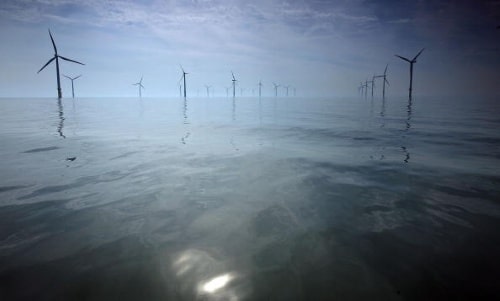A new report from Britain’s House of Commons Energy and Climate Change Committee warns the government that proposed energy reforms may have the perverse effect of encouraging companies to focus on building cheap gas power plants, limiting investments in renewable energy. As well, the Committee agreed with testimony from Friends of the Earth arguing that a “dash for gas” [80], could prevent the country from reaching its climate action targets, especially since gas plants are expected to rely on unproven carbon capture and storage technology.
The Department for Energy and Climate Change (DECC) has said that £200 billion of new investment in energy infrastructure is needed by 2020 to meet rising demand and achieve renewable energy and climate change targets. First published in November 2009, and revised in October 2010, six draft National Policy Statements on energy (NPSs) laid out the importance of building and funding new electricity infrastructure, to include renewables, nuclear, fossil fuels and improved grid connections. The NPSs aim to increase confidence for investors and to speed up the planning process for Nationally Significant Infrastructure Projects.
According to the report, gas plants provide low-cost, flexible generation that can be brought online quickly and reliably. As such, the Committee sees a continuing role for gas in Britain’s energy mix, especially during peak time usage.
While neither the report nor the Committee recommends a hierarchy of preferred technologies for investment, Tim Yeo, MP and Chair of the Committee, emphasized:
“If these new policy statements don’t put the cleanest forms of energy at the top of the agenda they will leave us dangerously dependent on fossil fuels.”
“The UK’s energy security and our prospects for creating a successful low-carbon economy depend on the government kick-starting a dash for low-carbon technology, not a new dash for gas.”
When commenting on the report, a spokesman from the DECC made clear that his department favoured a flexible approach, and would not abandon gas:
“Some new gas-fired power stations will be needed to complement low-carbon generation.”
“The National Policy Statements set out a clear need for investment in a diverse range of energy sources, so that we are not heavily reliant on just one or two technologies. By setting out this need, we give investors the certainty to bring forward proposals that maintain security of supply and reduce the carbon intensity of our energy mix.”
Responding to a possible “dash for gas,” Tom Foulkes, Director-General for the Institution of Civil Engineers, said:
“Government must clearly demonstrate its long-term commitment to low-carbon energy generation by setting an effective floor price for carbon and delivering on the principles outlined in the proposed Electricity Market Reform.”
“Only then will we be able to attract the hefty investment needed and avoid an ongoing reliance on fossil fuels.”
This report has significant implications for Britain. Not only has the government pledged to be the “greenest government ever,” but it must also live up to its European Union commitments to reduce greenhouse gases by 20% from 1990 levels by 2020, and to generate 15% of its energy from renewables. The government should therefore understand that expanding gas production will hurt Britain in the long-run by locking it into fossil fuel intensive development. With this in mind, prioritizing renewable energy and considering an energy technology hierarchy is the optimal way to reach its clean growth targets.
Subscribe to our newsletter
Stay up to date with DeSmog news and alerts







